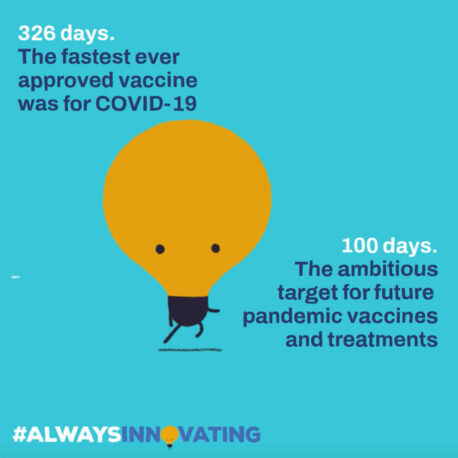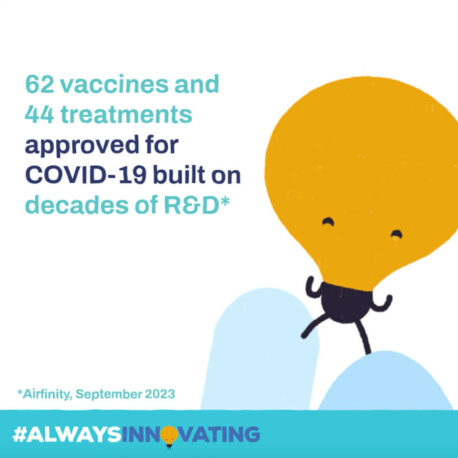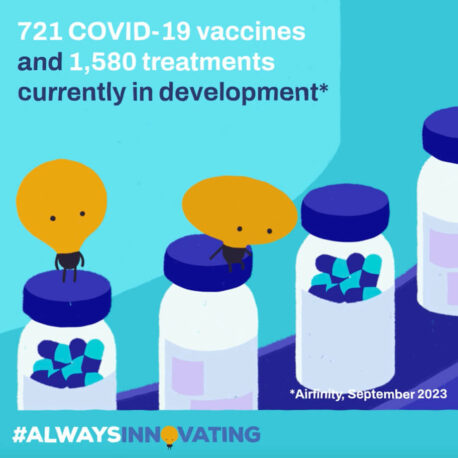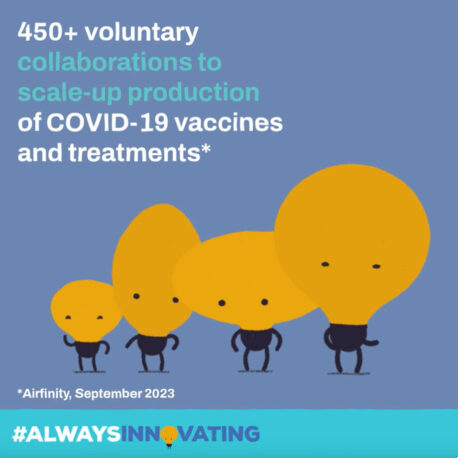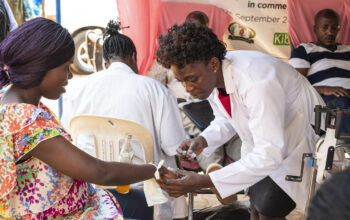COVID-19
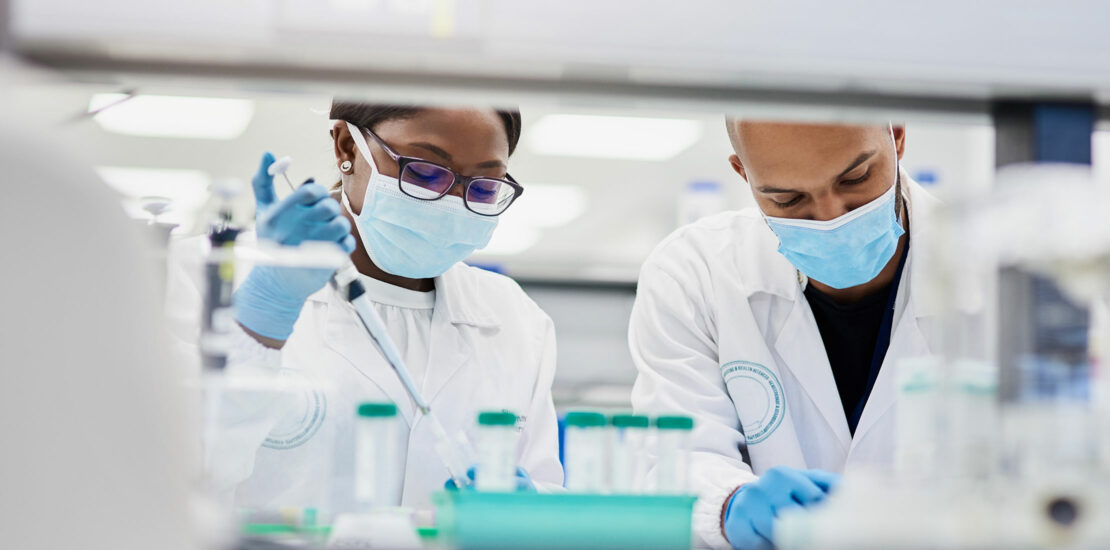

When the COVID-19 pandemic hit, the innovative pharmaceutical industry came together with the broader global health community and responded with unprecedented speed and scale, overcoming major hurdles along the way.
Overview
IFPMA reacted equally rapidly to the challenge of keeping the global public informed about our members’ actions.
In March 2020, our industry made seven commitments to communicate, guide, and measure its work in the fight against COVID-19.
Once the first vaccines were approved and manufacturing scale up had begun, IFPMA members committed to five steps to advance vaccine equity in May 2021. In February 2022, our members continued to draw attention to equity and announced three priorities to urgently increase access to COVID-19 vaccines.
Decades of investment made COVID-19 vaccines possible in record time
received emergency use authorization from NRAs and/or WHO by end of 2021
doses of vaccines were produced by end of 2021
delivered by the COVAX facility to 146 countries
prevented thanks to COVID-19 vaccines
In the first year alone, COVID-19 vaccines delivered benefits of up to USD 60 and USD 475 per dollar invested, based on avoided infections, hospitalizations and death
A rapid response
When the pandemic began, the industry has overcome many obstacles while concentrating on rapidly deploying clinical trials, introducing new and repurposed treatments, and developing and rolling out new vaccines on groundbreaking technological platforms.
The scale of the crisis required a novel approach. Pharmaceutical companies shared real-time clinical data with government and authorities, and developed new manufacturing processes, updated facilities, recruited skilled workforce, and started to manufacture doses before testing and approval.
Over 13 billion COVID-19 vaccines have been administered worlwide, facilitated by over 381 partnerships, voluntary licenses, and technology transfers.
Over 36 treatments have been approved for emergency use or standard of care including antivirals, anti-inflammatories, and monoclonal antibodies. Companies developing COVID-19 treatments entered into over 150 collaborations to expand manufacturing capacity.
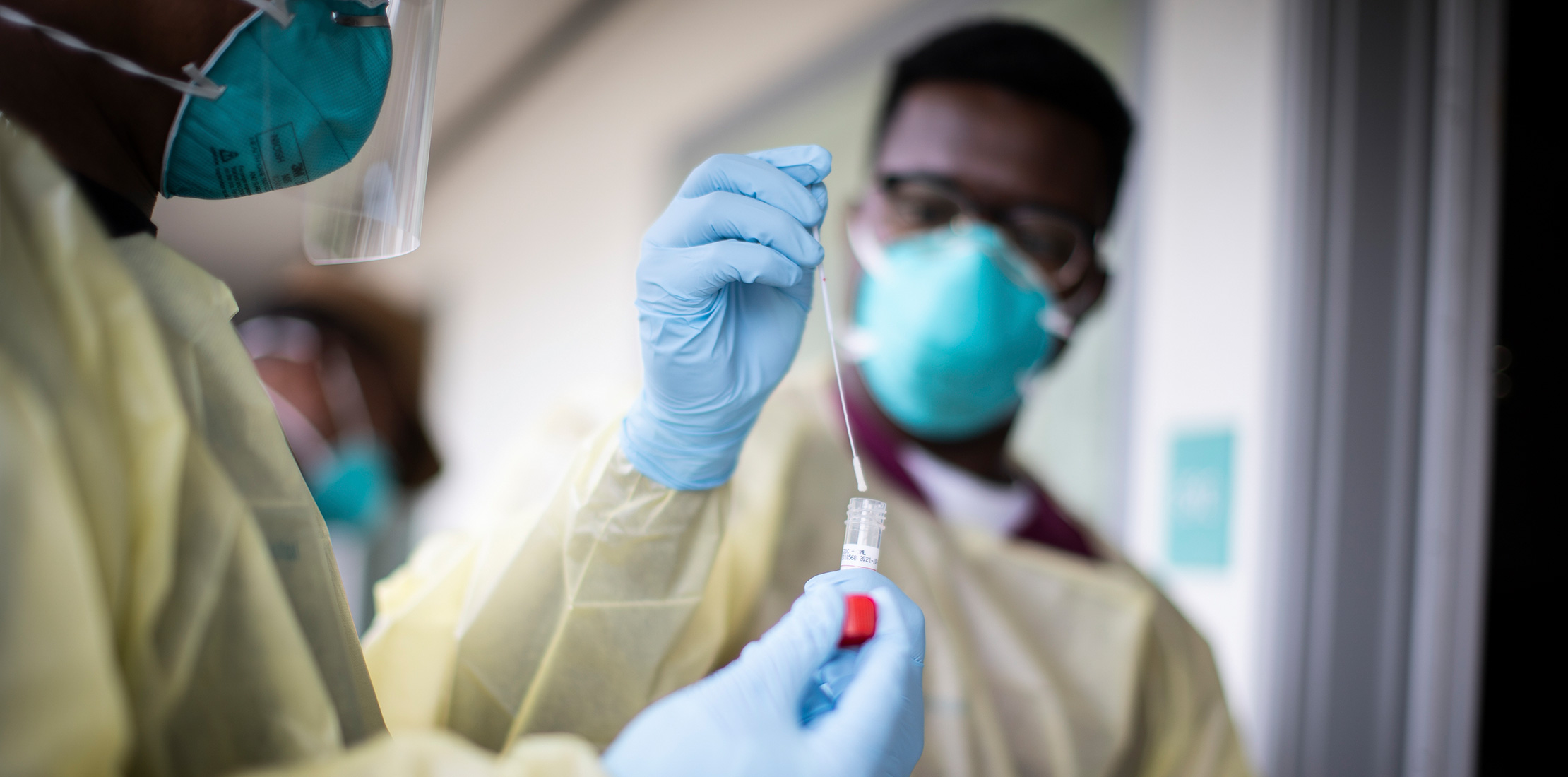
Advancing equitable access to innovation
IFPMA was a founding partner of the ACT-Accelerator and fully committed to the goal of the WHO’s COVAX Pillar to accelerate development, production, and equitable access to safe, effective, and affordable COVID-19 vaccines. The COVAX facility delivered 2 billion COVID-19 vaccines to 146 countries.
Treatments are another important tool to fight COVID-19. Our industry has tested existing treatments and developed new ones, including antivirals, anti-inflammatories and monoclonal antibodies. It has prioritized equitable access by implementing multiple strategies, including over 150 voluntary licenses and tiered pricing.
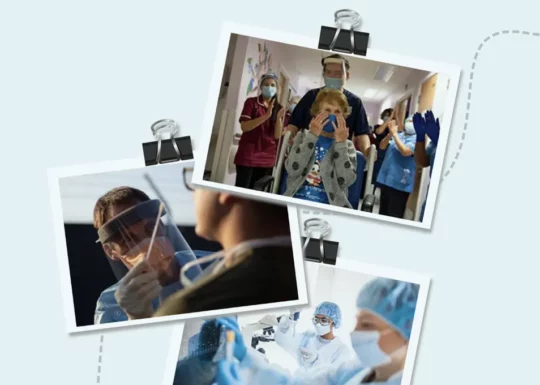
IFPMA COVID-19 Innovation Timeline
This timeline illustrates how the innovative pharmaceutical industry came together with the broader global health community to respond to the COVID-19 pandemic with unprecedented speed and scale, overcoming significant hurdles along the way.
Achieving COVID-19 vaccine equity

Seven commitments
The industry laid out a series of seven commitments to communicate, guide, and measure its work in the fight against COVID-19 in March 2020, early in the pandemic. They leveraged their unique expertise in R&D and manufacturing of vaccines, diagnostics, and therapeutics.
Read more
Five steps
To intensify efforts to turn vaccines into vaccinations, in collaboration across key stakeholders, the industry announced a renewed commitment to three priorities to urgently increase access to COVID-19 vaccines in February 2022: country readiness, equitable distribution, and innovation.
Read more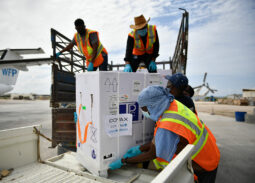
Three priorities
In May 2021, after the approval of multiple effective and safe vaccines and the manufacturing scale up was in full swing, IFPMA members committed to five steps to advance vaccine equity, from dose sharing and optimized production to calling for the removal of trade barriers, country readiness, and further innovation.
Read moreApplying lessons learned from COVID-19
Alongside its work in tackling COVID-19, the industry began reflecting on lessons learned that can inform how we create a healthier, safer, more equitable world. The innovative pharmaceutical industry proposes to turn these lessons into strategic insights that will guide future efforts to build effective pandemic preparedness and response.
This culminated in the groundbreaking Berlin Declaration in which industry proposed a framework to improve the real-time delivery of vaccines, treatments and diagnostics for priority populations in lower-income countries for future global pandemics.
IFPMA, together with the Biotechnology Innovation Organization (BIO), the Developing Countries Vaccine Manufacturers’ Network (DCVMN), representing vaccines innovators and manufacturers, jointly endorsed the Berlin Declaration framework, pledging to reserve an allocation of real-time production of vaccines, treatments and diagnostics for priority populations in lower income countries and take measures to make them available and affordable.
The pharmaceutical industry proposed additional commitments for equitable access to essential medical countermeasures for future pandemics, outlining a package of practical tools to expand access when the next pandemic strikes. These commitments represent concrete pathways to make equitable access possible.
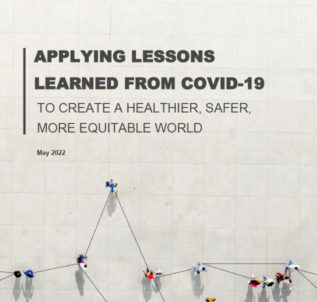
Applying Lessons Learned from COVID-19 to Create a Healthier, Safer, More Equitable World
This report identifies 10 insights the biopharmaceutical industry has gathered so far as the world moves into the third year of the COVID-19 pandemic.
Read more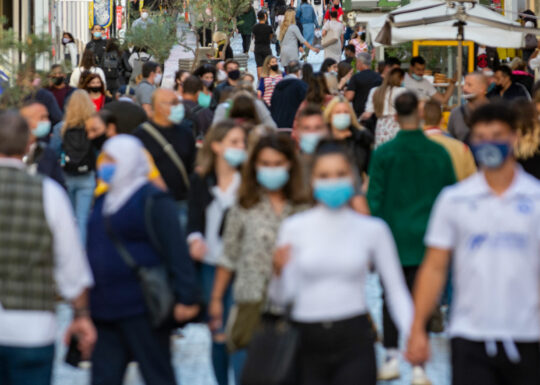
Pandemic preparedness
The innovative pharmaceutical industry is committed to improving pandemic preparedness for the future. IFPMA is helping to lead the way.

Access to pathogens
Immediate, unrestricted access to pathogens and their genetic information is fundamental to global health security and the crucial first step to developing the vaccines, medicines, and tests the world needs.
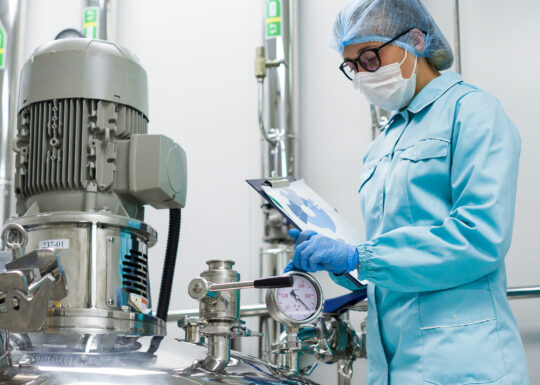
Technology transfer
Technology transfer sustainably builds R&D gaps, increase the availability of vaccines and medicines, and stimulates investment in key industrial areas.



